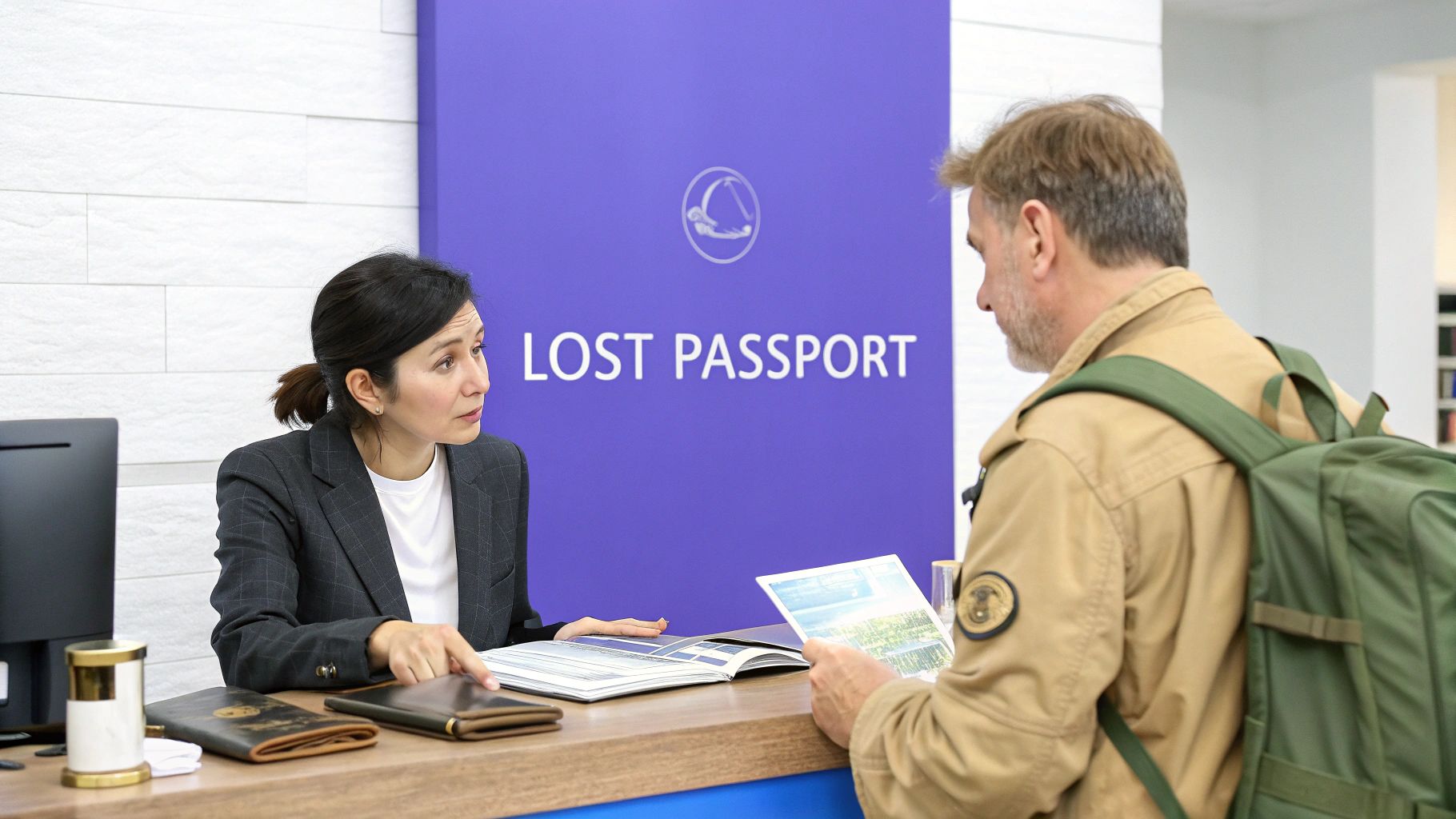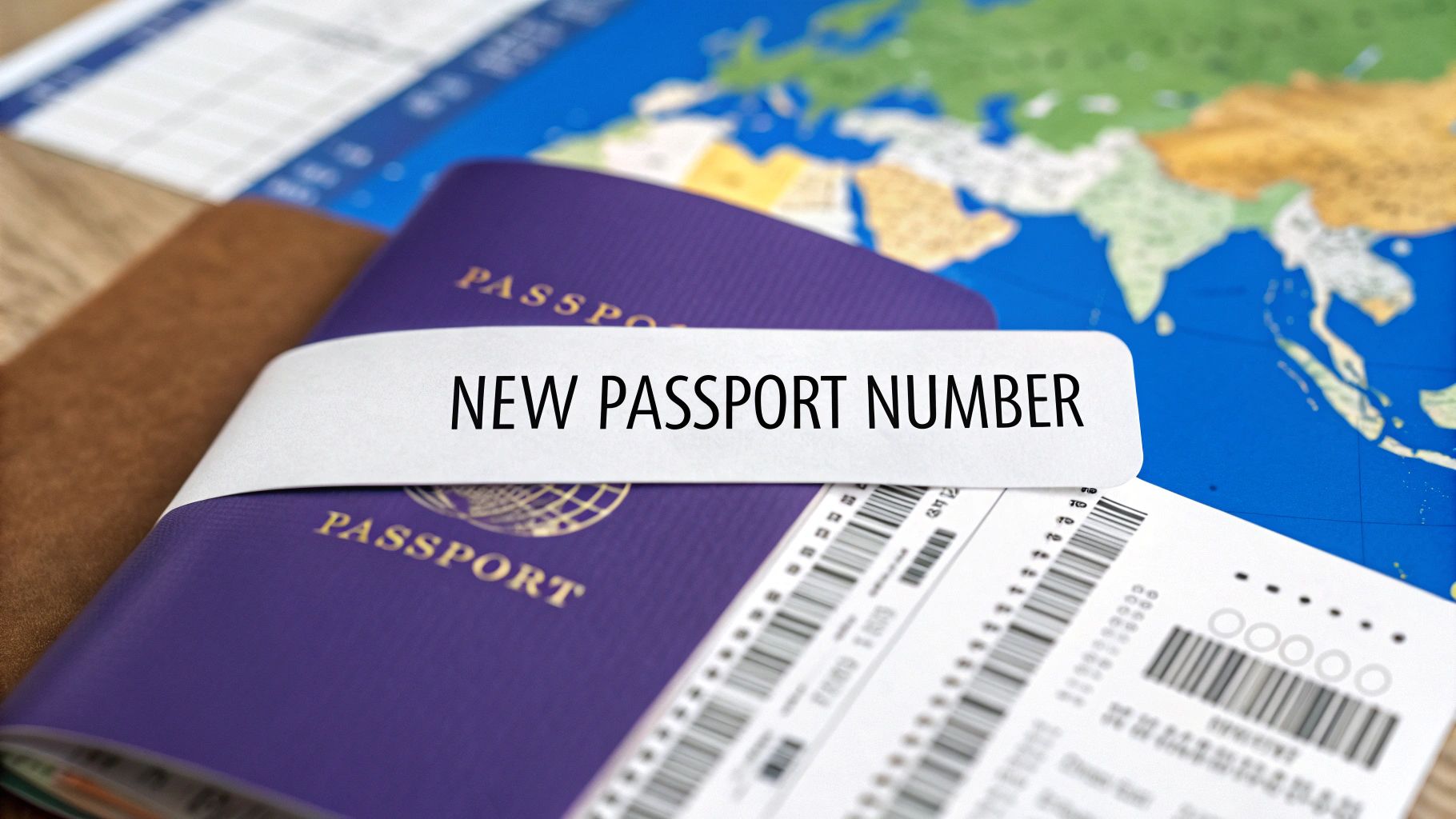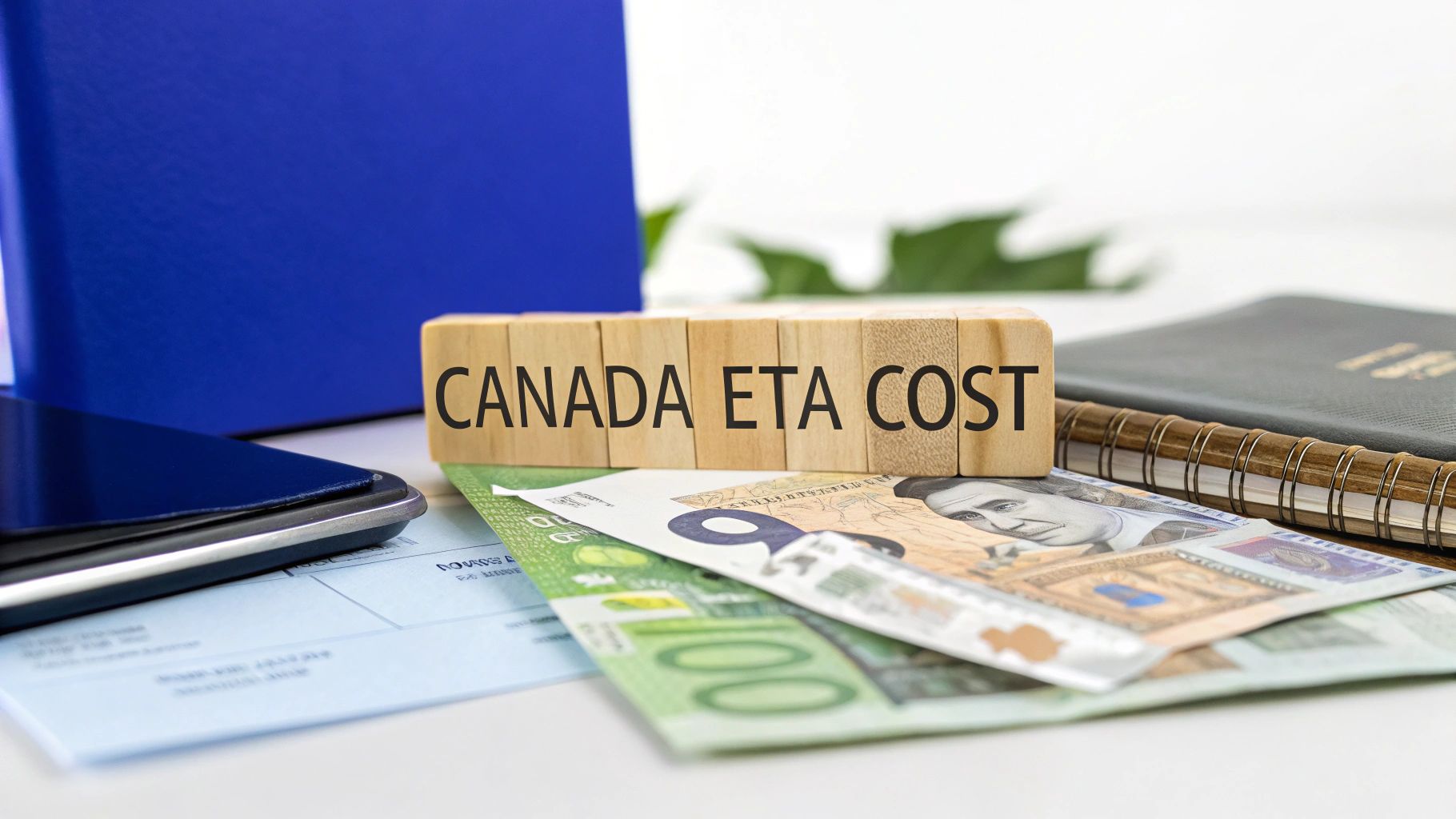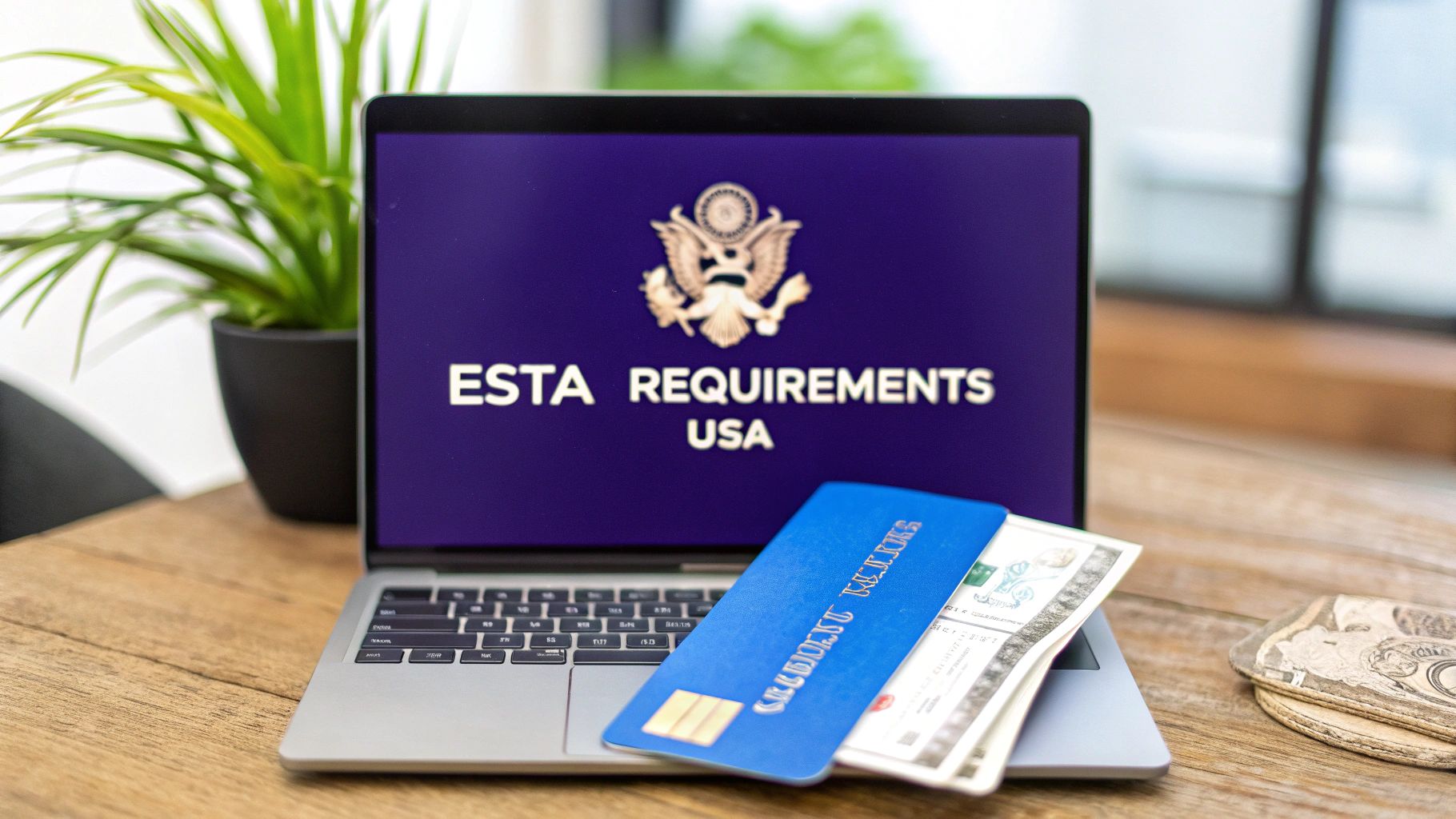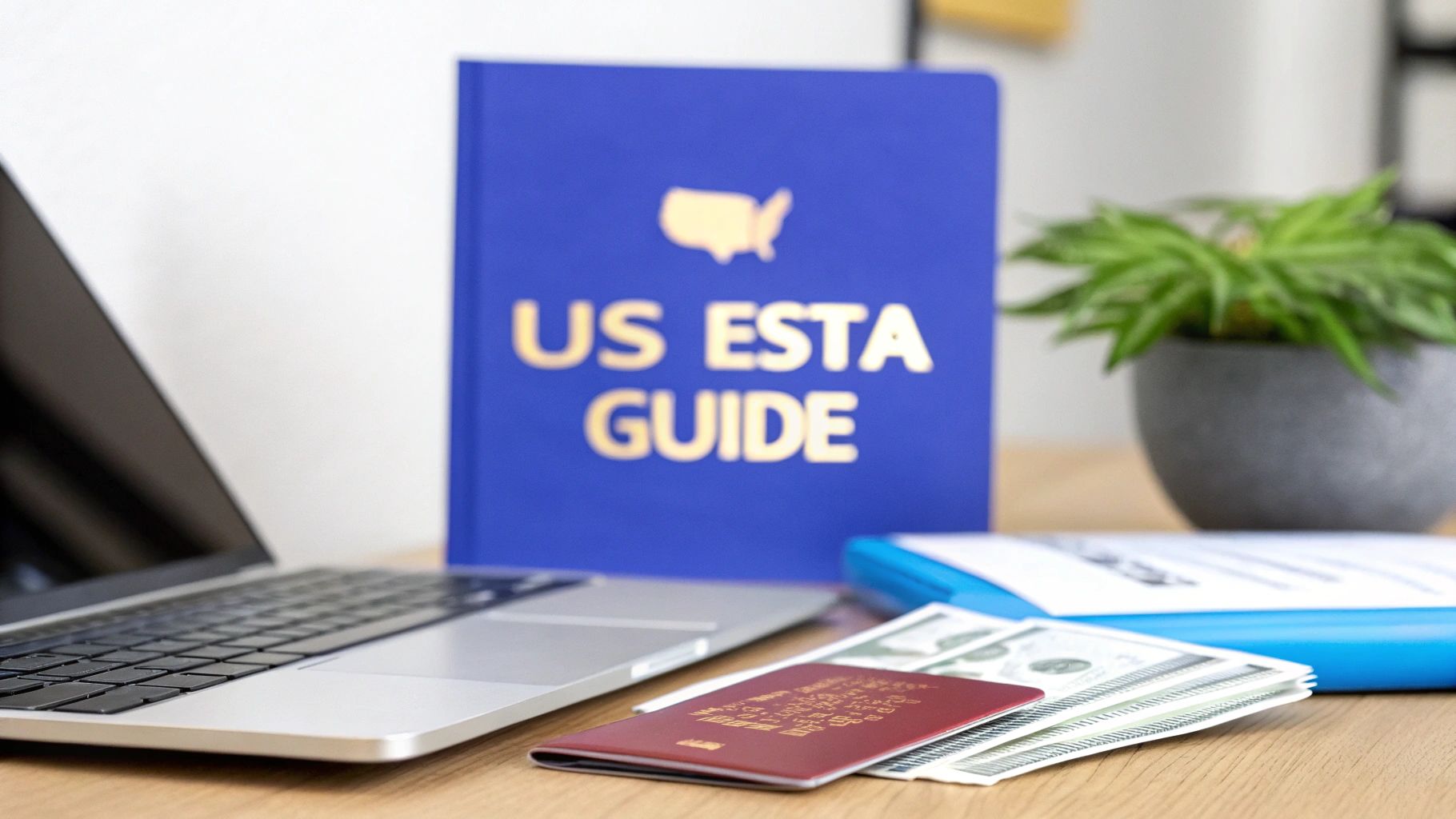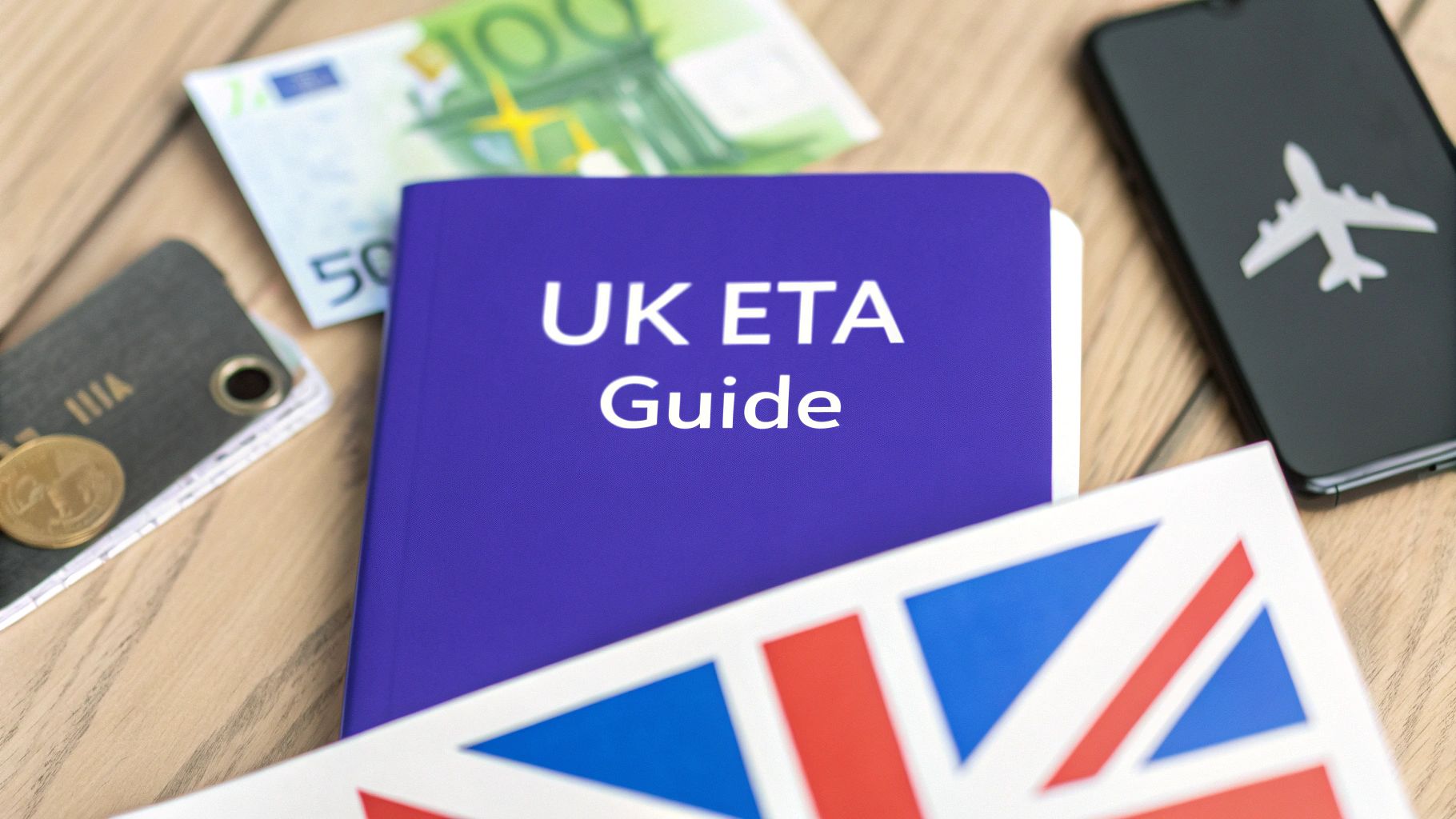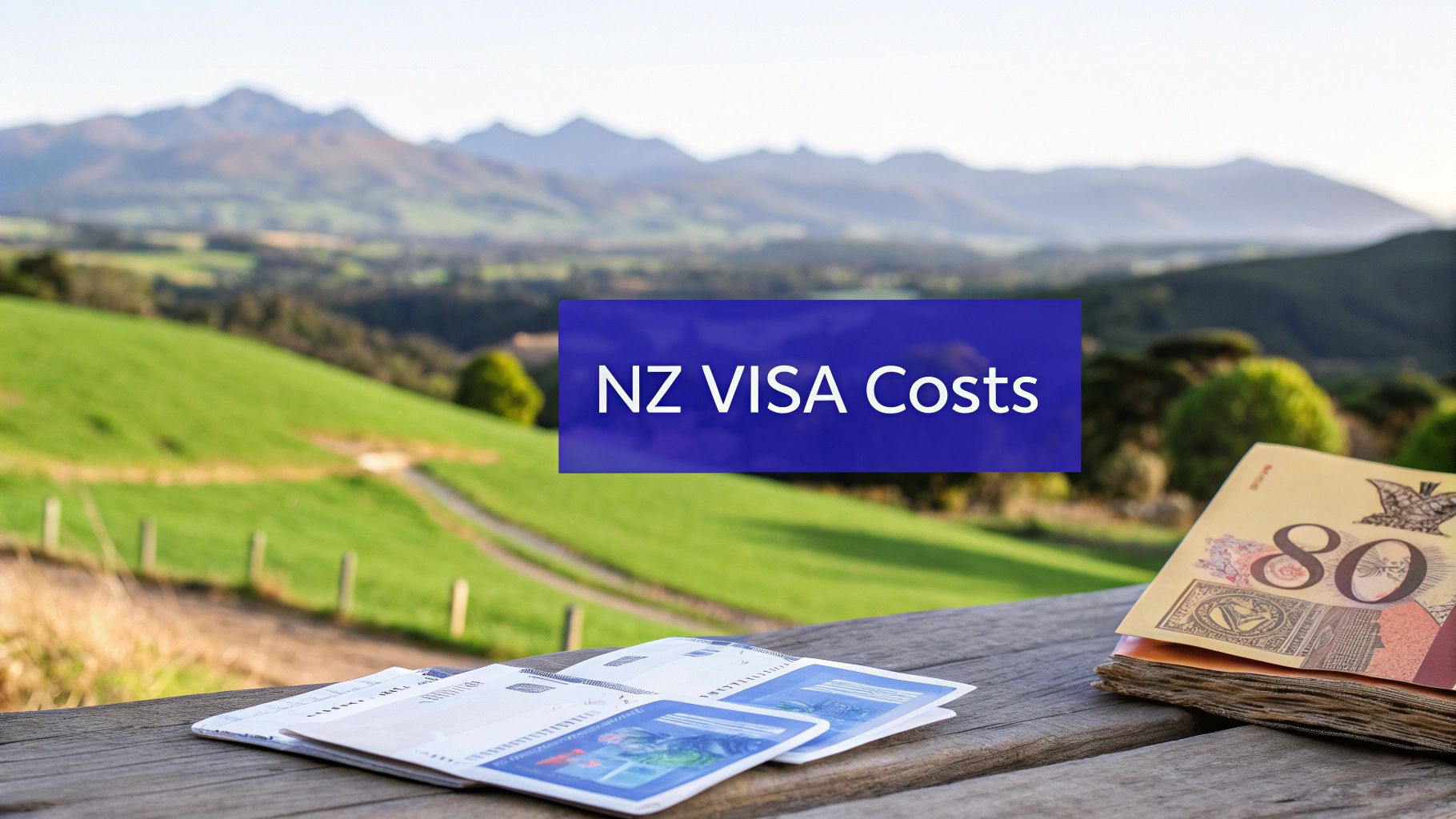
Decoding New Zealand, UK, and Canada Travel Authorisation Charges
Before you start dreaming of Milford Sound, Big Ben, or the Canadian Rockies, let's talk about the practical side of things: the cost of getting into your destination. For many travelers, this involves an Electronic Travel Authorization (ETA), and the total cost isn’t just one flat fee. Think of it more like buying a concert ticket—you have the price for the seat itself, and then you might have a separate venue or service fee. For New Zealand, for example, your "ticket price" is the main application fee, and the "service fee" is often an International Visitor Conservation and Tourism Levy (IVL). Similarly, the UK and Canada have their own ETA systems with specific costs.
Understanding Travel Authorization Costs Upfront
Budgeting for an international trip means looking beyond just flights and hotels. The cost of your visa or entry permit is a crucial first step, and it’s not a one-size-fits-all number. The final price tag can shift quite a bit depending on who you are, where you're from, and which country you plan to visit.
Essentially, the total cost you'll pay is a combination of two key parts. First is the government application fee, which covers the administrative work the country's immigration department does to process your paperwork. The second piece can be additional levies or taxes, like New Zealand's IVL, which funds conservation and tourism projects.
Key Factors Influencing Your Authorization Fee
So, what actually determines how much you'll pay? It boils down to a few key things:
- Type of Entry: A simple Electronic Travel Authorization (ETA) for a short trip is much cheaper than a full Visitor Visa, which involves a more thorough assessment.
- Your Nationality: Thanks to various international agreements, the fee can differ based on your passport. Some nationalities pay more or less than others.
- Application Method: How you apply matters. Applying online is almost always the cheaper and faster route. Paper applications require more manual work, and their price reflects that.
Knowing this breakdown helps you budget accurately and sidesteps any nasty surprises. Every dollar has a purpose, whether it’s for processing your file or protecting the very environment you’re coming to see.
Quick Look at Common Entry Costs
To give you a clearer picture, here’s a quick snapshot of the base fees for the most common ways people enter New Zealand, with a comparison to the UK and Canada ETA systems. Remember, these are approximate and don't include other potential costs like medical exams or translations.
| Entry Type | Approximate Base Fee (NZD) | International Visitor Levy (IVL) | Primary User |
|---|---|---|---|
| NZeTA | $17 - $23 | $35 | Visa-waiver country visitors |
| Visitor Visa | $211 | $35 | Non-waiver country visitors |
| Student Visa | $430 | $35 | International students |
| Work Visa | $700 | N/A | Skilled workers, partners |
For travelers to the UK or Canada, the process is streamlined through their respective ETA systems. The UK ETA and Canada eTA are designed for short-term visits, and while government fees are modest, the application requires precision to avoid rejection.
Breaking Down Tourist and Electronic Travel Authorizations (ETAs)
If you're planning a trip to New Zealand, the UK, or Canada, your first step will likely involve getting an Electronic Travel Authorization (ETA) or a standard Visitor Visa. What's the difference? Think of the ETA as an express pass for visitors from eligible countries—it's much faster and simpler. On the other hand, the Visitor Visa is the traditional route for those who don't qualify for an ETA, requiring a more in-depth application.
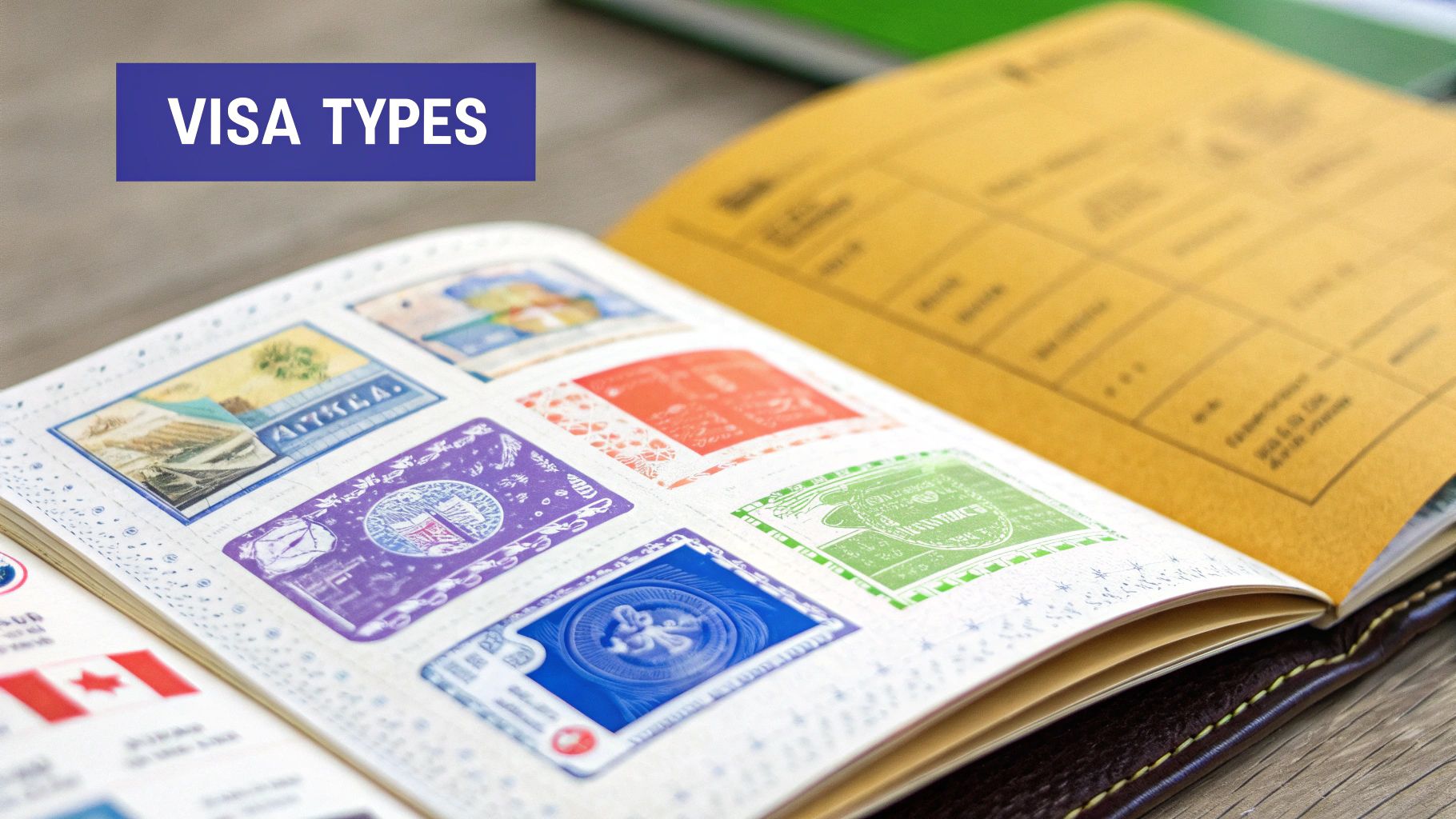
The fee structure for ETAs is pretty easy to get your head around. For the New Zealand NZeTA, you'll pay a small processing fee plus the mandatory International Visitor Conservation and Tourism Levy (IVL). For the UK ETA and Canada eTA, you pay a government processing fee.
Navigating the Application Process
While the application process might look straightforward, it's surprisingly easy to make small mistakes. A single typo in your passport number or a mix-up with dates can cause frustrating delays or even an outright rejection. This is where getting a bit of professional help from a third-party application assistance provider can be a real game-changer.
Using a service like AssistEntry is a smart way to sidestep these common pitfalls and give your application the best chance of success. Their experts double-check that every detail is perfectly aligned with official requirements. To get a better feel for how these modern travel permits work, you can read more about the general concept of an Electronic Travel Authorization.
To simplify your UK ETA application and increase your chances of approval, consider using AssistEntry — their experts guide you through the entire process, starting from just $79. For travel to Canada, they offer similar expert assistance for the Canada eTA, ensuring your application is error-free.
Breaking Down Professional Work Visa Costs
Getting a work visa is a huge step in your career, and figuring out the costs is one of the first, most crucial parts of the puzzle. The financial side can feel a bit complicated, especially since New Zealand has recently updated its visa fees. The most common route for skilled workers is the Accredited Employer Work Visa (AEWV), and the price tag on that has changed quite a bit.
These aren't just small adjustments; they signal a real shift in New Zealand's immigration strategy. The government has raised fees across the board to help the system pay for itself. This doesn't just impact you as the applicant—it also affects the employers who are bringing you over.
What to Expect From Recent Work Visa Fee Hikes
The latest fee updates have made a significant difference to the cost of professional visas. For instance, the government's application fee for the AEWV shot up from NZD 750 to NZD 1,540—that's more than double the old price. Work visas for partners of Kiwis or residents also saw a big increase, jumping from NZD 860 to NZD 1,630. These numbers really drive home how important it is to budget carefully for your move.
If you want to dig deeper into how these changes fit into the bigger picture, you can check out the full report on recent fee increases to understand all the adjustments to work-related visas.
The image below gives you a good visual of the typical application journey and shows you exactly where these costs pop up.

As you can see, the process involves several stages, and the fees are due right at the start when you submit everything.
Here's the bottom line: With visa costs on the rise, getting your application right the first time is absolutely essential. A simple mistake could get you rejected, forcing you to pay that hefty fee all over again.
Of course, there are other routes to a work visa, like the Post-Study or partnership-based options, and each has its own set of fees to work through. Given how much is on the line, making sure your application is perfect from day one is non-negotiable. If you're looking for more background on the different kinds of applications, our general guide on various visa applications can help clear things up.
If you're planning to study in New Zealand, getting your budget right from the start is absolutely crucial. The total cost isn't just a single visa application fee—it’s a mix of different charges that you'll need to account for to avoid any financial surprises.
Think of the main visa application fee as the starting point. On top of that, you might have to pay other costs like processing levies or the International Visitor Conservation and Tourism Levy (IVL). Whether the IVL applies to you often depends on your nationality and how long you plan to study, so it's vital to get a full picture of all the potential costs.
Understanding Recent Fee Increases
Immigration New Zealand recently increased its student visa fees, and it's a change that has definitely made an impact on student budgets. For many applicants, including those from the U.S., the base fee shot up from around NZD 280 to approximately NZD 485.
But that wasn't the only increase. The associated tourism levy for these same students also went from NZD 35 to NZD 100. When you do the math, that's a jump of more than 70% in the total upfront cost. Research suggests this hike is a major consideration for nearly half of all prospective students weighing New Zealand as their study destination. To get a handle on your own budget, it’s a good idea to read up on the details of these student visa fee changes.
Key Insight: The visa fee is just one piece of the puzzle. Students must also factor in non-refundable program deposits, which can be around USD 500, and international airfare, often costing up to USD 2,000.
These expenses can add up fast, which makes careful financial planning more important than ever. It can also be helpful to see how other countries handle their travel authorizations. For example, our guide on the U.S. travel authorization process gives you a good point of comparison. Knowing all the potential costs upfront means you can kick off your academic journey in New Zealand with confidence and without any last-minute financial stress.
How to Pay and Avoid Unexpected Costs
Knowing the visa fee is just the start. The real trick is getting your payment processed smoothly without getting stung by extra charges you didn't see coming. For New Zealand visas or the UK and Canada ETAs, this is a critical step.
Official application portals make it easy to pay with a Visa or Mastercard. It’s convenient, sure, but that convenience can sometimes hide costs that aren't part of the sticker price. It's easy to focus on the main application fee, but many people get a nasty surprise when the final bill is higher than they budgeted for.
Common Hidden Costs to Watch Out For
Keep an eye out for these sneaky expenses that can quickly inflate your total cost:
- Currency Conversion Fees: When you pay in your home currency for an application priced in another (like NZD for New Zealand or CAD for Canada), your bank will convert it. They almost always charge a fee for this service, typically adding 1-3% to the transaction.
- Credit Card Surcharges: Some payment systems tack on a small percentage just for the privilege of using a credit card. It's not a huge amount, but it all adds up.
- Ancillary Service Fees: This is a big one. Depending on the visa you're applying for, you might need to pay for things like medical exams, police background checks, or certified document translations. Each of these services has its own price tag.
Navigating all of these variables can be a headache. To avoid the stress, many travelers opt for a third-party service. A good one will handle everything—from double-checking your paperwork for errors to making sure the payment goes through correctly, saving you from costly mistakes and the dreaded re-application fee.
Trying to manage all these financial details yourself can feel overwhelming. A third-party application assistance provider like AssistEntry offers a service where prices start from $79 (which includes the government fee). This service includes full verification of the application, error-checking, and compliance review, which greatly increases your chances of approval.
You can learn more about how these services simplify the process on the AssistEntry homepage. They take care of the complexities, so you can be confident your journey is starting on the right foot.
Common Questions About New Zealand Visa Charges
Still have questions about New Zealand visa costs? You're definitely not alone. It's easy to get tangled up in the details of fees, levies, and policies. Let's walk through some of the most common questions to clear up any confusion and help you feel confident about your application.

Why Did New Zealand Visa Fees Go Up?
If you've looked at visa costs recently, you might have noticed a significant jump. This wasn't an accident; it was a strategic move by the New Zealand government. The goal was to shift the immigration system towards being self-funding, which takes the financial burden off Kiwi taxpayers.
Essentially, the idea is that the people who directly benefit from immigration services should be the ones covering the operational costs. This change has affected nearly all visa types. For example, the Student Visa application fee went from NZD 285 to NZD 465, and the Post-Study Work Visa fee increased from NZD 475 to NZD 645—and that’s before factoring in higher levies.
Are New Zealand Visa Charges Refundable?
This is one of the biggest questions we hear, and the answer is almost always no. It's important to understand why.
The fee you pay isn’t for the visa itself; it’s for the service of processing your application. Immigration New Zealand's staff still does all the work of reviewing your documents and checking your eligibility, whether your visa is approved or not. This is a standard practice across the world. For instance, the same principle applies to the UK visa and ETA process.
Key Takeaway: Because visa fees are non-refundable, getting your application right the first time is critical. A simple mistake can lead to a denial, forcing you to pay the full fee all over again to reapply.
Other Frequent Questions Answered
To round things out, here are a few other common queries we often see:
Can I pay for someone else's visa application?
Yes, you absolutely can. The payment system is flexible, allowing a family member, sponsor, or employer to cover the costs on behalf of the applicant.Do I have to pay the IVL every time I visit?
If the International Visitor Levy (IVL) applies to your visa or NZeTA, then yes, you have to pay it with each new application. Think of it as tied to the application, not as a one-time pass for multiple trips.
